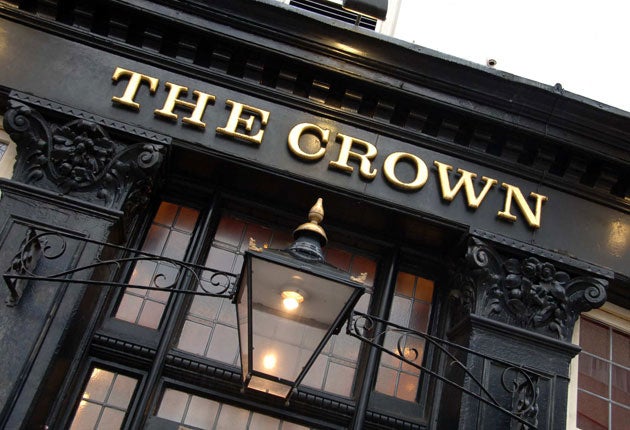The headbanger's guide to Brum
Adrian Mourby follows a new Metal Heritage tour around the Midlands city

When I was a teenager, Birmingham Town Hall was the main music venue in a city drowning in car fumes. Modelled on the Temple of Castor and Pollux in Rome, this solid marble edifice stood, like everything else in Brum, marooned on its own traffic island.
I would take my life in my hands to see the City of Birmingham Symphony Orchestra perform there. Our town hall had in its time premiered works by Mendelssohn and Elgar. But I knew it led another, darker life. Led Zeppelin played here, as did Deep Purple and Uriah Heep. Birmingham, the home of 19th-century light industry, was also the home of 20th-century heavy metal.
It's a scary thought that while I, a Bournville lad, was taken to get my school shoes from Clarks, Ozzy Osbourne, an Aston boy, was sitting in El Sombrero drinking coffee. The story goes that he was found staring glumly at the poster for a Mario Bava film, wishing he could think of a better name for Polka Tulk Blues Company, the band he'd just joined. The title of the film, of course, was Black Sabbath.
Heritage comes round faster and faster these days. So you can't blame Birmingham for generating a new Metal Heritage tour, which will take headbangers back to the venues of their youth, assuming they can remember them. For me, someone who spent his teen years listening to Sibelius, it's a whole other Birmingham.
I returned last weekend and was pleased to see that the city has put a lot of its six-lane highways underground. Metal Guide in hand, I walked down Hill Street. At the bottom there will soon be a plaque to indicate where the Golden Eagle pub used to stand.
The Eagle was a blues venue in the 1960s and 1970s and its Art Deco façade should have made it a listed building. Instead, it was demolished, replaced by – nothing. This is a problem, when coming back to Brum. So much disappears in the first stage of an alleged improvement that never materialises.
Whiskey a Go-Go, the club where Ike and Tina Turner and Cream played in the 1960s, has gone, too. According to Chris Phipps, who wrote the Metal Heritage tour, it used to stand on the corner of Hill Street and Navigation Street. Another heavy metal plaque will be going up there soon.
The Futurist Cinema is still here, however. This was where the West Bromwich group Led Zeppelin turned up to introduce local audiences to their film The Song Remains the Same. Unfortunately, the only plaque on the Futurist reads "Spearmint Rhino".
The Crown pub is still in Station Street and is still a pub. According to Chris, the rooms upstairs were known as Henry's Blues House. Here Polka Tulk used to play before they morphed into Earth and then Black Sabbath.
Across the broad unlovely Queensway, Hill Street turns into Hurst Street. This is where the aspiring musicians who would one day be Judas Priest and Napalm Death used to congregate at El Sombrero. Their other focal point was the Diskery, a record shop that Chris's guide describes as "a high altar of records, a warren of vinyl".
Chris is a local boy, a film-maker who wants to see the musical contribution of Birmingham and the Black Country recognised. "The region, in its post-war dullness, worked very hard and played hard," he tells me. God, I remember the dullness. The Sixties did not swing in Birmingham as they did in London and Liverpool. Our life was so unexciting we looked forward to Crossroads. No wonder Ozzy went over to the dark side.
Chris is a mine of local information. The trail is now working to get those plaques up and soon there will be a podcast that you can take from venue to ghostly venue, bringing alive the sounds of my heavy metal homeland, assuming it doesn't deafen you first.
Compact facts
How to get there
Adrian Mourby was a guest of Staying Cool at the Rotunda (0121-643 0815; stayingcool.com), which offers rooms from £99 per night.
Further information
Heavy Metal Birmingham (homeofmetal.com); Marketing Birmingham (visitbirmingham.com).
Join our commenting forum
Join thought-provoking conversations, follow other Independent readers and see their replies
Comments